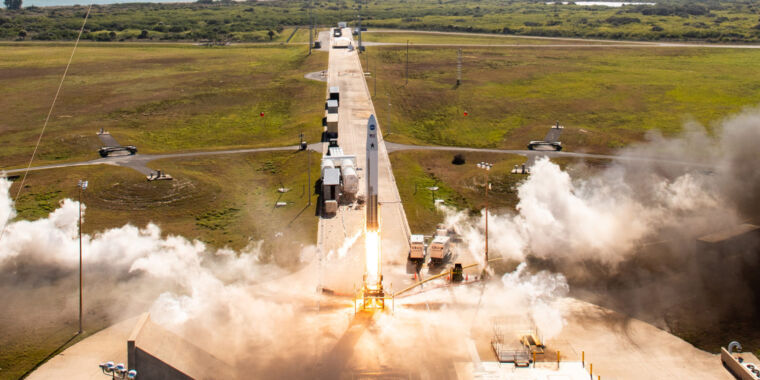Astra’s long, strange trip in the space business is taking another turn. The company announced Thursday that it is going private at an extremely low valuation.
Four years ago, the rocket company, based in Alameda, California, emerged from stealth with grand plans to develop a no-frills rocket that could launch frequently. “The theme that really makes this company stand out, which will capture the imagination of our customers, our investors, and our employees, is the idea that every day we will produce and launch a rocket,” Astra co-founder Chris Kemp said during a tour of the factory in February 2020.
Almost exactly a year later, on February 2, 2021, Astra went public via a special purpose acquisition company (or SPAC). “The transaction reflects an implied pro-forma enterprise value for Astra of approximately $2.1 billion,” the company stated at the time. For a time, the company’s stock even traded above this valuation.
But then, rockets started failing. Only two of the seven launches of the company’s “Rocket 3” vehicle were successful. In August 2022, the company announced a pivot to the larger Rocket 4 vehicle. It planned to begin conducting test launches in 2023, but that did not happen. Accordingly, the company’s stock price plummeted.
Last November Kemp and the company’s co-founder, Adam London, proposed to buy Astra shares at $1.50, approximately double their price. The company’s board of directors did not accept the deal. Then, in late February, Kemp and London sharply cut their offer to take the company private, warning of “imminent bankruptcy” if the company doesn’t accept their new proposal. They offered $0.50 a share, well below the trading value of approximately $0.80 a share
On Thursday, Astra said that this deal was being consummated.



They offered $1.50 in Nov, got rejected, then came back in Feb and successfully bought the company at $0.50? Man, that’s some negotiation skills. Either that or the board should be fired.
The first offer wasn’t rejected, they didn’t have the money on hand at the time. Between the first offer and the second they got investor funding together and the cash on hand dwindled, so the second offer was with cash to cover the offer and some to cover running the business between acceptance and closing. After the second offer the board released a statement saying it’s this or liquidate the company, so they went with this because it’s the best outcome for everyone with the current state of things.
The CEO is the person trying to buy it so they are the ones setting the price. The board has no confidence in the company and wants to get what little compensation they can get for it so they are taking the low ball offer after getting the cold shoulder at their test price. It’s not a good look but also not a good place to be.